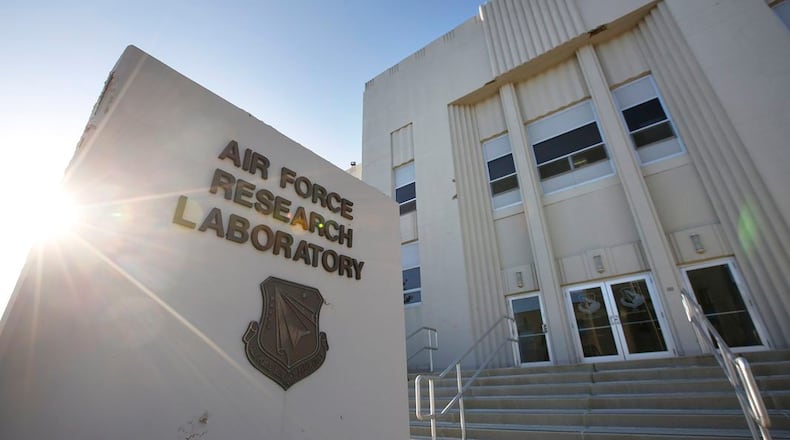The Dayton region shared in that spending. In fiscal 2020, the region received 91% of AFRL’s Ohio obligations, up from 73% in fiscal year 2013.
The Air Force Life Cycle Management Center (AFLCMC) is also an important spender, obligating $646 million with small businesses in fiscal year 2020, spending $1.31 billion with businesses outside that category.
That’s well up from $552 million directed to small businesses in fiscal 2019. Last fiscal year, the lab spent $519 million with “non-small businesses.”
Jeff Hoagland, the coalition’s president and chief executive, said the DDC started tracking small business spending at AFRL in 2013.
“Proximity matters,” Hoagland said Monday. “I like to refer to the missions at Wright-Patt like corporate headquarters. So AFRL, they have close to a $6 billion budget. To me, that’s like a $6 billion corporation in our backyard.”
“It’s the intellectual capital of the United States Air Force,” Hoagland added, referring to all of Wright-Patterson.
According to AFRL’s latest data, Ohio has been the No. 1 destination for all AFRL contract actions, ranked top for its number of small business contract actions and ranking first for its number of dollars directed to small and disadvantaged businesses.
In terms of dollars spent or obligated, Virginia receives more of AFRL’s total spending obligations, exceeding $800 million last fiscal year, with Ohio coming in second among the states, at just over $600 million in fiscal 2020. California is third, at less than $500 million.
Of AFRL’s total global obligations from 2013 to 2020, $22.7 billion, obligations to Ohio businesses reached nearly $4.3 billion, according to the lab.
In the Dayton region, Greene County firms received most of those Ohio dollars, at about $375 million, above Montgomery County, which saw just over $200 million in fiscal 2020 spending obligations.
AFRL is the primary scientific research and development center for the Air Force, with a workforce of more than 11,000 across nine technology areas and 40 other operations across the globe.
AFLCMC concerns itself with the cradle-to-grave life cycles of Air Force weapons, equipment and airplanes. There, total dollar amounts of obligations to businesses in Dayton and beyond continue to rise, Hoagland said.
“Based on their total budget, they’re like a Fortune 6 company,” he said of AFLCMC.
Both AFRL and AFLCMC are headquartered at Wright-Patterson, which has more than 30,000 military and civilian employees.
Wright-Patterson has always been an important employer in the Miami Valley. But beginning with the 2005 national BRAC (Base Realignment and Closure) process, which moved key missions to the base, those numbers started to balloon. Before that milestone, the base had about 18,000 employees, Hoagland noted.
In the near-aftermath of BRAC, in about 2007, base leaders then estimated that Wright-Patterson would gain about 1,120 new military and civilian employment authorizations.
“They constantly need more people, because people start to retire,” Hoagland said Monday.
About the Author

